Broken Glass
- 3 years ago
- 27
- 0

 2 years ago
2 years ago
What are Broken Latina Whores good for, anyway? It’s kind of a trick question, and the answer is going to depend a lot on your perspective and honestly, your masturbatory preferences as well. You’ve probably figured it out from the title, but this next site ain’t your typical premium Latina site full of big bubble butts and Spanish-speaking bimbos. I mean, you’ll find them in spades around here, but the action is a bit rougher than you’d expect from a joint like SexMex, MamacitaZ or Culioneros....
Premium Latina Porn Sites 3 years ago
3 years ago
BROKEN ECHO by Jenny North Antanaclasis /ant-an-uh-KLAS-is/ n. From the Greek, antanaklasis ("echo" or "reflection") from anti- ("against") + ana- + klasis ("breaking or bending") 1. A play on words in which a key word or phrase is repeated in a different, often contrary, sense. **************************************************************** STORY ONE: The Ballad of the Broken Blade (Act I) **************************************************************** It was the...
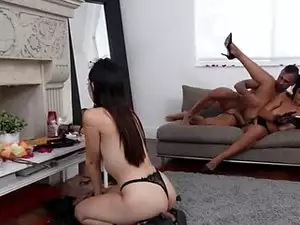 3 years ago
3 years ago
Broken Little Thing: Chapter 3 "So, how is she?" My sister-in-law asked me from the other side of the line, from all the way south, in Florida. Ava was upstairs showering again, getting dressed so I could take her out to dinner. And I thought, how was she? Perfect. That's what I thought. The loveliest person and the best sex I ever had. A girl who had for only a couple of years stepped into her teenagehood, who still struggled with how her body developed, and that had graced me with the...
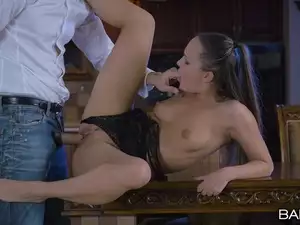 4 years ago
4 years ago
There Are Things Far Worse Than Death by Millie Dynamite NOTE: This work contains material not suitable for anyone under the age of eighteen (18) or those of a delicate nature. It contains descriptive scenes of graphic sexual nature, graphic rape, graphic violence, and graphic depictions of abuse or torture. By reading this eBook, you assert that you comply with your local or state laws. This book is purely a work of fiction. Names, characters, places and incidents either are the product...
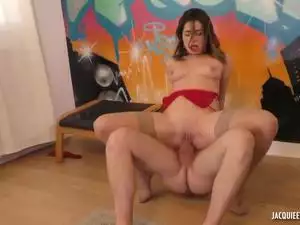 3 years ago
3 years ago
Beth’s Agony Light was fading as the sun fell beneath the rolling hills. He couldn’t stop staring at her swollen face, her right eye closed, her eyelid purple, angry black bruises beneath both eyes from her broken nose, lips distended. Her fine blond hair framed a hideously disfigured face. Her fragile form remained still beneath the hospital blanket. The constant rhythm of the respirator was the only sound in the room. A nurse arrived and hung another bag of fluids to be drained...
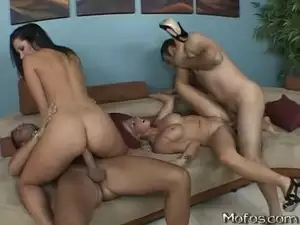 4 years ago
4 years ago
A/N: More Vincent-oriented stuff. Not so kink-filled this time. All human forms. Small bits of boy love fluff here and there. —– SemiBroken Eggshells Denver, CO: It seems that these young people are still on their hunt for their friend. The head of the group, Nathan Winters, had this to say, ‘It’s apparent that Vince doesn’t want us to find him, but we are going to. If everyone else drops out, I am, at least, going to continue my hunt for him.’ Vincent Fox, 23, left his home city of Denver...
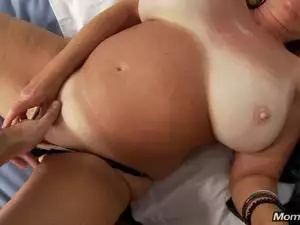 3 years ago
3 years ago
The feel of the cool cement floor against his face allowed John Anderson to be revived momentarily. Drool pooled beneath his cheek, seeping uncontrollably from the corner of his mouth. A single, uncovered red light bulb hung precariously from an extension cord that had been duct-taped to the ceiling in the middle of the basement, providing the only source of illumination in the make-shift dungeon that had been his coven for the past three days. He was still disoriented from the pain, pain...
 4 years ago
4 years ago
I took a walk around the dark cellar that I had prepared for her, taking in her body. I had not cut away any of her cloths and she was still drop dead gorgeous. The picture of her I had found online did her no justice, those pictures that I had spent my lonely nights with. She was just what I had been looking for. Young and naïve. She was a solid ten out of ten, her ass was a nicely curved and she had perky c-cup tits but why she had become so popular online was her face. It was perfectly...
 2 years ago
2 years ago
The wife and I were on our first vacation alone without family or friends in quite some time. In fact, it was the first time the two of us were totally alone in some time, and we were really looking forward to it. From the time the plane landed, we were in "party" mode. We grabbed a few beers at the airport waiting for our ride to the resort. When we arrived the room was not quite ready and they treated us to some champagne, as we waited and toured the grounds. When we finally got to our room a...
 3 years ago
3 years ago
I couldn't believe it. What was she thinking? And with Jones, of all people! I needed to get away. Jumping on my motorcycle, just a modest Honda 500, I took off out of my neighborhood, away from my cheating girlfriend. Images of walking in on her fucking that douche, Jones, refused to leave my mind. I never saw the car, before it hit me.* * *An annoying beeping sounds wakes me up. My eyes are slow to open, and even slower to focus. What happened, and where am I?"Ahh, Mister Dickens, glad to see...
 3 years ago
3 years ago
Broken The feel of the cool cement floor against his face allowed John Anderson to be revived momentarily. Drool pooled beneath his cheek, seeping uncontrollably from the corner of his mouth. A single, uncovered red light bulb hung precariously from an extension cord that had been duct-taped to the ceiling in the middle of the basement, providing the only source of illumination in the make-shift dungeon that had been his coven for the past three days. He was still disoriented from the pain,...
 2 years ago
2 years ago
The following characters appears here and in other parts of the story: Fritz Herkimer Ley Line Wizard, 6’-2’’ tall, 220 pounds, 38 years old, blond hair, blue eyes The Guardian Keeper of the Books, about 5’-6’’ tall, neither young or old, very long blond hair, deep blue eyes “Stop here and turn left,” Al told me. He was sitting up in his cat seat and looking out the side window of the car. We were on our way back home from the bookstore and still had a good ways to go. “You need...
 3 years ago
3 years ago
"Soft little balls ... So sweet..." The woman played with my dick and balls like she'd never seen any before. "It's almost time to go," the man sighed and stroked my hair lovingly while I moved my tight, soft lips up and down his long cock. "I don't want to!" Stephanie pouted from behind me and I felt her mouth on my hairless little sack, her tongue playing against it. She had her nose pressed against my butthole like she wanted to fuck me with it. "I know, believe me." The man,...
 2 years ago
2 years ago
Somewhere nearby an alarm went off, or maybe some lights blinked, it didn't matter. I'd gotten barely three meters through the door when a large black man with a dragon tattoo flying around his massive bald skull stopped us. "Excuse me, miss ... Would you like to check your purse?" He was polite about it anyway and I had little choice in the matter. "Whatever," I shrugged, slipping my purse off my shoulder. Ransom and Viv exchanged looks, but didn't say anything. I seriously doubted...
 4 years ago
4 years ago
Friday: Twenty-five miles due west of Venice, California, a naked woman sunned herself. Dana Featherstone lounged on the deck of her custom built forty-foot cabin cruiser. The fact was it had been custom built for someone else was immaterial to her. All she cared about was it had been custom built and it belonged to her. She lay on her back, baking her well-oiled body in the hot sun. The radio was set to an oldies station and she hummed along to the music as she slowly rolled over and over...
 3 years ago
3 years ago
I posted tomorrow's chapter this evening. Tomorrow I shall probably be gone. Not many people have responded. However the ones who have were all supportive, unless I missed something. Another FBI agent came up and yelled over the noise of the people. "You can't do that. I have a federal warrant here. She is coming with me." Two big outlaw bikers in full colors knocked people out of the way. One yelled in a hoarse voice, "She goes where she wants to, pig." He weighed over three hundred...
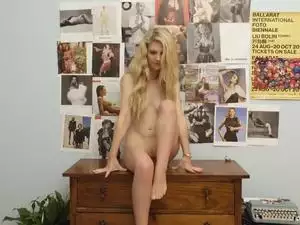 4 years ago
4 years ago
Alice didn’t have long to ponder her fate. Before she’d even finished her sigh, she heard a rattle of keys and the thump of boots.“Well, at least I shall have company,” she told herself out loud. “Perhaps it’s the captain and he wishes to explain that this has all been a misunderstanding and that I am free to go after, of course, he gifts me with a lovely new frock and undergarments and invites me to supper. I suppose, this being a ship, that it he’ll serve salmon braised in a garlic and...
Masturbation 2 years ago
2 years ago
by mypenname3000 Copyright 2013 Chapter Twenty-one: The Glassners Visit my blog at www.mypenname3000.com. “I shot him.” Silence filled the car. Mary's hand was holding mine, gently squeezing. Her hand was warm and comforting. My dad was dead. My mom shot him. I didn't know what to do. I didn't know what to say. I opened my mouth, worked my jaw, but nothing came out. What could I say? What should I do? My dad was dead. The bastard was dead. A ragged sob came over the...
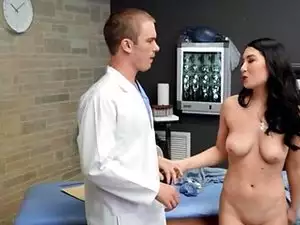 4 years ago
4 years ago
Underglass The alarm went off in my head and another day was staring me down. I just want to lie here for ever. I hate this feeling. It’s a mixture of dread and helplessness. I don’t want to move, I don’t want to get up, and each second I lay here feels like it gets harder to move. The ceiling fan is making circles over my head and putting me in a trance. I just can’t take this anymore, this daily life of sameness and drudgery. It’s got nothing left in it for me. Posting#:...
 2 years ago
2 years ago
"I shot him." Silence filled the car. Mary's hand was holding mine, gently squeezing. Her hand was warm and comforting. My dad was dead. My mom shot him. I didn't know what to do. I didn't know what to say. I opened my mouth, worked my jaw, but nothing came out. What could I say? What should I do? My dad was dead. The bastard was dead. A ragged sob came over the speakers of my Mustang, my phone synced up to the car stereo via bluetooth. "Mark, I don't know what to do," sobbed my mom...
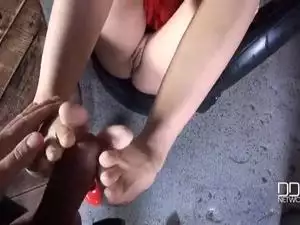 2 years ago
2 years ago
Big Glass The big, empty hall would soon be abuzz with light, gentle music, laughter, and eager conversation. For now, waiters and waitresses in immaculate black uniforms moved with quick steps to smooth wrinkles from tablecloths, line up glittering champagne glasses, and polish the empty glass cases in anticipation of their displays. The glass walls of the displays were already gleaming, but even the tiniest speck of dust needed to be brushed off before the crowds arrived. One waiter steadied...
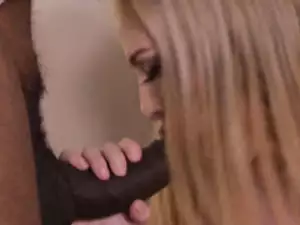 3 years ago
3 years ago
Big Glass The big, empty hall would soon be abuzz with light, gentle music, laughter, and eager conversation. For now, waiters and waitresses in immaculate black uniforms moved with quick steps to smooth wrinkles from tablecloths, line up glittering champagne glasses, and polish the empty glass cases in anticipation of their displays. The glass walls of the displays were already gleaming, but even the tiniest speck of dust needed to be brushed off before the crowds arrived. One waiter steadied...
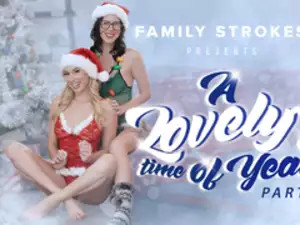 3 years ago
3 years ago
Ryan walked around town to find something for his mother's birthday, he didn't have or wanted to spend a ton of cash on her as they weren't that close to begin with. His mom developed a bitchy attitude ever since he started working. But she was still his mother and he still did love her.Ryan was just out of high school and had a job at the local gym. The pay was poor, but he got to use all the exercise equipment that he wanted to, as long as he wasn't working at the time, which also helped to...
 4 years ago
4 years ago
Chapter 1 - Awakening A young blonde woman named Daisy had woken up from a drug-induced coma. A few weeks ago, she had overdosed heavily on heroine. She didn't do it with the express purpose of killing herself, but she had done it knowing full well even though she knew it was a possibility. Her life had fallen apart and she just wanted the high, and to not feel anything anymore. When she awoke, the nurses at the rehab clinic told her that she would have died if it weren't for her best...
 3 years ago
3 years ago
Abby was having a dream that she was having sex with a man. He fucked her for what felt like hours, until he stopped and went down to her pussy. She watched as his incredible long tongue pushed itself impossibly deep inside of her. Pleasure overtaking her, she quickly woke up, continuing to feel the same exact feeling. Abby's head jerked up and she saw Buster licking her pussy. "Buster what are yo-" Abby's disgust at the situation changed almost immediately after Busters tongue licked...
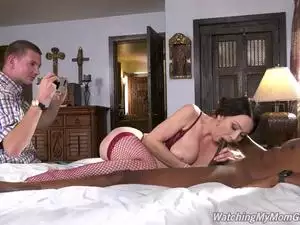 4 years ago
4 years ago
Chapter one His pain was excruciating yet he would not allow these blood suckers to see it on his mangled face, he would be dropped not very gently to the cold marble ground in the extravagant hall. A pair of pure bloods watching him set his calm resolve to a burning rage, if only he had his weapon. "Oh look yet another human at our feet." came a voice, he would trace the source to a silver haired woman setting on a step of the grand staircase. She lazily stirred her finger in a...
 2 years ago
2 years ago
Kat Reborn Alice and Kat spent many hours together after her meltdown. The women understood. Kat had finally broken through the scars of denial, pain and humiliation and now had to learn to deal with the hideous reality of what had been done to her. Michael could not swim with his stitches, so he spent time in his gym, practicing old skills. He was working on the heavy bag when Lynne came in. He was dressed in workout pants, and athletic shoes. He was naked above his waist and...
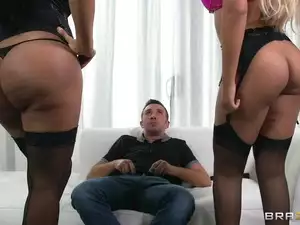 3 years ago
3 years ago
Harem Night Beth’s announcement shocked them. Michael had always exuded strength, confidence and control. They now knew he was as broken as them. Rafaela looked at Rachael. “I think we have been very selfish,” she said sadly. Rachael nodded in shame. All looked to Alice. “It’s a form of PTSD though he’s in control,” she turned to Beth, “Tell me about his nightmares.” Beth told them the little she knew. Her father had killed many times, his call sign, “Terminator”. On his...
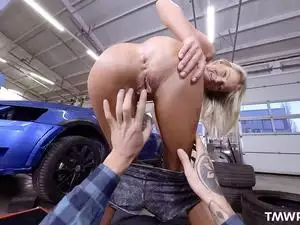 4 years ago
4 years ago
Blowjob, Erotica, Incest, Male/Female Teens, Masturbation, Older Female/Males, Reluctance. I apologize for any confusion this may cause, but if you don't like any of those themes, turn back now. Otherwise, please enjoy. ===================================== I couldn't believe it. What was she thinking? And with Jones, of all people! I needed to get away. Jumping on my motorcycle, just a modest Honda 500, I took off out of my neighborhood, away from my cheating girlfriend. Images of...
 2 years ago
2 years ago
Prologue She is nineteen years old, with the body of a fifteen year old girl, and the eyes of a ninety year old holocaust victim. Her lips are a thin line of pink and crimson, and when they are not, they are parted in unspoken protests, revealing to everyone what happens when those protests are made audible. Her hair is a mess of knotted brown and dirty blonde strands, and her skin is a surprising contrast with its tan almost olive color, and amazingly the bruises are a purple contrast to the...
 4 years ago
4 years ago
Stella Bordon sat at her desk and reviewed the testimony in a divorce proceeding that her client was involved in. "Geesh," she thought to herself, "this guy is lying through his teeth, Edie is right, he is hiding assets some place!" For the next ten minutes she poured over the deposition of Edie's husband, and all at once a light bulb went off in her head, and she spun around in her desk and reached for a law book on the top shelf of her book case. As she stretched up to retrieve it, snap, her...
 4 years ago
4 years ago
I couldn't believe it. What was she thinking? And with Jones, of all people! I needed to get away. Jumping on my motorcycle, just a modest Honda 500, I took off out of my neighborhood, away from my cheating girlfriend. Images of walking in on her fucking that douche, Jones, refused to leave my mind. I never saw the car, before it hit me.* * *An annoying beeping sound wakes me up. My eyes are slow to open, and even slower to focus. What happened, and where am I?"Ahh, Mister Dickens, glad...
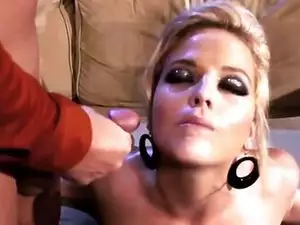 2 years ago
2 years ago
Homeless she thought, what do I do? Staying in an apartment with people she didn't know, she felt uncomfortable when they had to feed her. Where do I go from here? In her short years she had lived a lifetime. One of the girls in the house invited her to a party across the way. It was some place to be so they went. The summer night was warm when they walked to the front door.The house was full but what she saw was men, big men in jeans and biker cut-offs sitting and standing around the front...
Reluctance 4 years ago
4 years ago
"The Penalty is death." My English speaking lawyer told me.I froze, "But it was for personal use!" I explained.He shook his head "One hundred per cent pure, I think not, and since 1st April there is zero tolerance, I am sorry but you admitted possession, there is nothing to be done." "There was a girl who got pregnant and they gave her life imprisonment instead of death." I pointed out."Not in this country," he said, " plead guilty, save yourself the anguish, that is my advice."The Lady from...
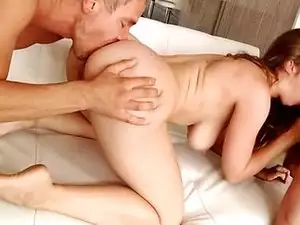 4 years ago
4 years ago
DarksX for sexstories.com "I could ask Mom to let me come live with you after they get married, you know," Ava said while sitting sideways on the oversized couch I had in front of my TV. The young teen girl woke up late, had a bowl of cereal for breakfast, then came to the living room to make me company while she checked her homework for the weekend on her tablet. I sat at the comfy recliner chair to the right side of the large TV room, perpendicular to where she sat, and I watched a...
 4 years ago
4 years ago
DarksX for sexstories.com "I could ask Mom to let me come live with you after they get married, you know," Ava said while sitting sideways on the oversized couch I had in front of my TV. The young teen girl woke up late, had a bowl of cereal for breakfast, then came to the living room to make me company while she checked her homework for the weekend on her tablet. I sat at the comfy recliner chair to the right side of the large TV room, perpendicular to where she sat, and I watched a...
 4 years ago
4 years ago
Edited by Barney R. Messed with by me. All mistakes are on mine. She broke a promise, a date, and my heart. It was the Saturday after Easter it was also our twenty-fifth wedding anniversary party. I am Richard, Rich, Jacobson, 49 and am a very successful inventor, writer, and OTC stock trader. My wife was Susan (Sue) Williams-Jacobson, 46 and was the owner of the most successful real estate company in the West Michigan area. We have two living children, Richard (not junior) 22, and a...
 3 years ago
3 years ago
"I keep telling you," Liz said. "You should call him. You should say you're sorry and ask him if you guys can talk." "Can we, like, not talk about this anymore?" Danielle said. "Danielle, school starts tomorrow. We're going to be juniors. You'll have to see him, whether you want to or not." Danielle had been trying not to think about that either. The remaining weeks of summer had been different than she'd predicted when her sophomore year ended. She'd thought she'd get a job,...
 3 years ago
3 years ago
"Wait," Jodie said. "You had his phone, and you didn't do anything with it? Like, keep it? Or throw it in a puddle of water?" "It's ... His phone," Elle said. "I'm not gonna do something like that." Jodie gave her a sidelong glance. "Aren't you supposed to be some sort of major bitch or something?" "What's that got to do with anything?" "Oh, nothing, nothing," said Jodie. "It's just that, you were awful kind to him. For a major bitch. Dude, if I'd had his phone, I...
 3 years ago
3 years ago
Danielle had the dream again. She was in her apartment, but everything seemed weirdly skewed—the colors were all wrong, tending to the browns and greens of decay, and everything seemed to be in slightly the wrong place. Everyone she saw, she thought she recognized—Nicole, her mom, Liz, Scott O'Connor, even people she hadn't seen in a while: Tom, Shelly Baumgarter, Emma Stanton—but everyone she saw looked slightly wrong—eyes too far apart, nose in the wrong place, skin the wrong color. As...
 3 years ago
3 years ago
"You got it?" I kicked myself off the wall when I saw Ransom coming out of the pharmacy. "Two of them, yeah," he smiled. "Maybe you do love me," I smiled back, hooking my arm through his. "Maybe." "Where do we live, boyfriend?" We were walking left and Ransom stopped, pulling me around in a gentle loop. "The other way." "Okay." We hopped a magger, one of the automated trolleys gliding over the big magnetic rails embedded under the streets. They weren't the fastest way to...
 4 years ago
4 years ago
Dana was careful when she stepped over the side and onto her private dock. The young guy stumbled as she helped him step over the railing. Only her strong hold kept him from a fall into the water. Dana helped him stumble up the cement walkway running from her small dock to her house. Each step was agony for him. "Come on, now, I know this hurts like hell, but you have to keep going. The doctor is waiting for us and he'll make you all better." It sounded almost as if she was talking to a...
 4 years ago
4 years ago
When they pulled up next to Elmo's house, he ran out to meet them. He stopped, his eyes widened and looked at Judge Reynolds in surprise, "Oh dear, Ralph! What are you doing with these disreputable characters?" "Well, Elmo, it seems I have made some strange alliances with unusual people." He chuckled humorlessly, "Though when one's nose is rubbed in it, one has to open his eyes and see what's before him." "Ralph, you have mixed more metaphors in one sentence than I do in a whole...
 1 year ago
1 year ago
DISCLAIMER:- The following text is sexually explicit and contains depictions of sexual acts that have been classified by the surgeon general as potentially dangerous and unhealthy. You must be a broad minded adult to read the text, and you must not make this text available to minors or to any person who does not wish to view it. Unprotected sexual relations with unknown partners is hazardous and we urge the use of condoms and safe sex at all times. *** Broken Fantasy (M/F, Intr, Cuck, Voyeur,...
Interracial 1 year ago
1 year ago
DISCLAIMER:- The following text is sexually explicit and contains depictions of sexual acts that have been classified by the surgeon general as potentially dangerous and unhealthy. You must be a broad minded adult to read the text, and you must not make this text available to minors or to any person who does not wish to view it. Unprotected sexual relations with unknown partners is hazardous and we urge the use of condoms and safe sex at all times. Broken Fantasy (M/F, Intr, Cuck, Voyeur, Anal,...
Interracial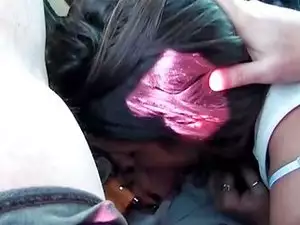 1 year ago
1 year ago
Stella Bordon sat a her desk and reviewed the testimony in a divorce proceeding that her client was involved in. "Geesh," she thought to herself, "this guy is lying through his teeth, Edie is right, he is hiding assets some place!" For the next ten minutes she poured over the deposition of Edie's husband, and all at once a light bulb went off in her head, and she spun around in her desk and reached for a law book on the top shelf of her book case. As she stretched up to retrieve it, snap, her...
Erotic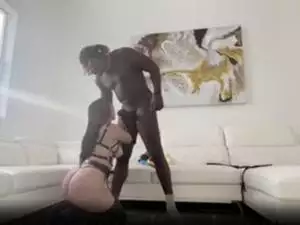 2 years ago
2 years ago
I came home one afternoon to find the house empty. Then I remembered Diane had a meeting that afternoon for some organization or group she had been volunteering with recently. I grabbed a cold beer out of the fridge, dropped my tie on the kitchen bar and walked out to the pool area. We had just had some work done recently replacing the tinted sliding glass doors with hurricane wind resistant sliding glass doors. They were reputed to withstand flying debris up to 135 miles per hour. Diane and I...
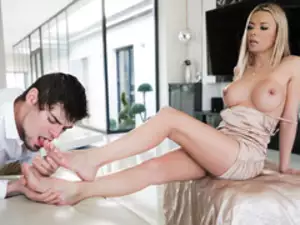 4 years ago
4 years ago
I came home one afternoon to find the house empty. Then I remembered Diane had a meeting that afternoon for some organization or group she had been volunteering with recently. I grabbed a cold beer out of the fridge, dropped my tie on the kitchen bar and walked out to the pool area. We had just had some work done recently replacing the tinted sliding glass doors with hurricane wind resistant sliding glass doors. They were reputed to withstand flying debris up to 135 miles per hour. Diane and I...
 3 years ago
3 years ago
I came home one afternoon to find the house empty. Then I remembered Diane had a meeting that afternoon for some organization or group she had been volunteering with recently. I grabbed a cold beer out of the fridge, dropped my tie on the kitchen bar and walked out to the pool area. We had just had some work done recently replacing the tinted sliding glass doors with hurricane wind resistant sliding glass doors. They were reputed to withstand flying debris up to 135 miles per hour. Diane and I...
Wife Lovers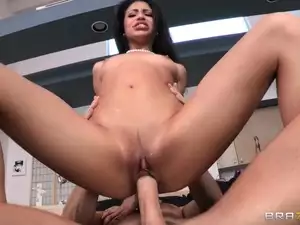 4 years ago
4 years ago
*inspired by the song ‘The Parting Glass’* I sat in the kitchen, by myself, just as I did every night since my wife had gone. In front of me sat a bottle of Cooley’s Irish whiskey, almost empty. I didn’t mind finishing a good bottle, since it was the only company I had anymore. I sloshed some around in my glass a little. Staring into the brown liquid, I could hear the old ghosts coming. They joined me for a drink every night, crowding themselves into my tiny kitchen and at the small table. I...
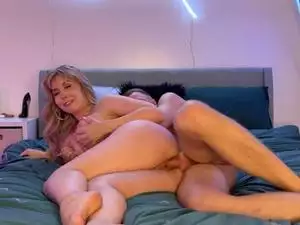 3 years ago
3 years ago
The tension of the day caused my mind to focus on getting to one place, and my body to be driven to keep my energy up until I could arrive there. The beach, even on a cold afternoon, was the only place I wanted to be. After several chilly visits I’d learned to layer my clothes and take clothes that kept the chill off. I went to walk on ‘my’ beach, to feel the water and sand on my feet, to sit and watch the waves in hopes of seeing ‘my’ seal, to watch ‘my’ sunset, hoping to bring a relief to my...
 3 years ago
3 years ago
“So lets get this straight. You say Prince Charming wants a golden dildo, 10 centimeters in girth and 40 centimeters in length and encrusted with diamonds?” Buttoni, Prince Charming’s page looked at the jeweller and nodded, “Indeed,” he agreed. “Well we’re right out of stock at present squire,” the jeweller admitted, “We got ivory and glass, bronze even, but gold with diamonds, well sorry squire, but there’s no demand.” “His highness says he will have you killed if you will not...
 3 years ago
3 years ago
I’m a pretty quiet guy. Somewhat stealthy you might say. I tend to enter a room soundlessly. Subconsciously I suspect I’m secretly hoping to catch someone up to mischief. Consciously, I know damn well…I’m really hoping for a glimpse of naked flesh. Don’t look at me like that. I know you have the same little secret, don’t you? Last week we were supposed to get hit with a major snowstorm here in New York City. It turned out to be a bust but for once my evil boss actually let us off early due to...
Toys 3 years ago
3 years ago
"Wow," Sharon said breathlessly. "It's snowing." It was the beginning of winter break and it had yet to snow, so when Sharon saw the feather-like white flakes outside, she rushed to the sliding glass window that led to her back yard. Placing her palms against the glass, she watched the snow fall peacefully. "James, come look!" she said without even a glance toward him. With her parents out all night on their date, Sharon had had the perfect opportunity to have her boyfriend over. James watched...
Straight Sex 4 years ago
4 years ago
Ann and the looking glass. ©Hitchhiker 2002.Ann had found the mirror at the second hand shop. She had moved house, and needed a long mirror to put in her new bedroom.The mirror had been hidden at the back of the second hand store behind three old wardrobes; it was covered in dust and cobwebs. Why she had looked that far back in the store, she couldn’t understand, but there it stood nearly 6 feet tall and 2 feet wide supported in a frame of near black Mahogany. The...
 3 years ago
3 years ago
Mirror, Mirror 1:Through the Looking Glass By Ron Dow75 A ten-year-old in pajamas, carrying a backpack crept up some stairs. At their top was a hatch door. Easing it open, he shone his flashlight into the now shadowed filled space. "Now, where did they put it?" Coming up into the unfinished area, he said, "Don't tell me they actually tried to hide it?" He found it under some old drapes. Pulling them away, he found the trunk locked. Ellis...
 1 year ago
1 year ago
Ann had found the mirror at the second hand shop. She had moved house, and needed a long mirror to put in her new bedroom. The mirror had been hidden at the back of the second hand store behind three old wardrobes; it was covered in dust and cobwebs. Why she had looked that far back in the store, she couldn’t understand, but there it stood nearly 6 feet tall and 2 feet wide supported in a frame of near black Mahogany. The carving on the frame was almost sensual with long curves and sweeps of...
Erotic 4 years ago
4 years ago
Perspective is an amazing thing. Through 48 years of marriage he never saw her age, even though each morning he saw more of his father’s face in the mirror then he did his own. Each daybreak he awoke to gaze into the eyes of the 26 year old girl he fell in love with and married so long ago. Looking at her now he finally saw all those years and the toll it had taken on her. Perspective also has a way of tempering the past when you look back. Theirs had been as close to a fairy tale as you could...